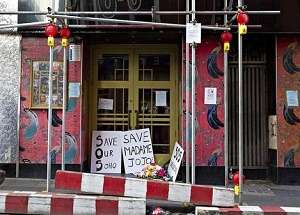NIGHTCLUB LICENCING REGULATIONS: What activity occupies most youngsters of today?
It seems, they are more likely to spend their weekends on the Internet rather than hitting local clubs and sinking booze.
A report by the Office for National Statistics came up with some surprising results. One in four of all teenagers and those in their early twenties are abstinent.
Nightclubs Down 50%
The majority of bars and clubs around Britain depend and survive on overindulging and carousing young people.
But, they are under increasing pressure. The number of nightclubs has almost halved in the United Kingdom, falling from 3,144 in 2005 to 1,733 in 2015.
The combined effects of the smoking ban, the longest recession in living memory, and increased governmental licencing regulation has taken its toll on night-time industries.
Institute of Ideas
It sparked a debate between UK club owners, policymakers, and festival organisers. The brainstorming took place at a round table hosted by the Institute of Ideas (IoI). They wanted to confirm whether UK licencing regulations are killing night-time economies.
 It suggests police and local councils are seeing nightclubs as a strain on resources. Britain’s night-time economy generates £70bn for the government and employs many young people.
It suggests police and local councils are seeing nightclubs as a strain on resources. Britain’s night-time economy generates £70bn for the government and employs many young people.
There is no doubt that it creates excitement in local areas. But, at a time when police budgets are under pressure, it’s seen as a strain. That is despite crime in England and Wales hitting record lows.
There is an attempt to control entertainment businesses which promote revelry and alcohol consumption. Thus, the government introduced a raft of new regulations.
The new measures include the ‘Late Night Levy‘. In a way, this levy taxes night-time venues to cover the cost of policing. The Anti-Social Behaviour Crime and Policing Act also came to effect in October 2014.
Besides, the Public Spaces Protection Orders, place the blame for crime and disorder squarely at the door of nightclub venues.
There have been several high-profile incidents in the past year. Some venues had their licences revoked as a result of perceived crime creation. For example, Madame Jojo’s in London Soho was home to some of the borough’s most diverse nightlife for more than half a century.
The club had its licence revoked by Westminster Council in November 2014. It came after CCTV footage showed their bouncers using baseball bats to deal with an alleged drug dealer.
Club security staff claimed they were helping to keep order. But, bouncer laws and regulations limit what door staff can do – even in hostile encounters.
London Night Tube
The Night Tube is scheduled to arrive in London in the next few years. Its arrival should open up the night-time economy as never before.
Even so, creating a 24-hour city to rival Berlin and Amsterdam means we need to support our night-time industries better. Working with authorities should ensure we expand our global city. Clamping down with over-regulation on licencing laws in the UK is not helpful.
ALSO IN THIS SECTION
Business and Finance News: Get the latest headlines about business regulations and financial laws.
FCA Hospitality Rules: A warning on receiving free invitations to sports events or social dinners.
Money Laundering Rules: How does the new crackdown and extra responsibilities affect business?
Tax on Alcohol and Tobacco: Current ‘sin’ tax rates on two of the most popular items in the UK.
Tax Duty on Free Bets: HMRC announce plans to amend tax duty regulations to online free bets.
Ticket Tout Rules: New legislation introduced to protect consumers against ‘rip off’ ticket touting.

